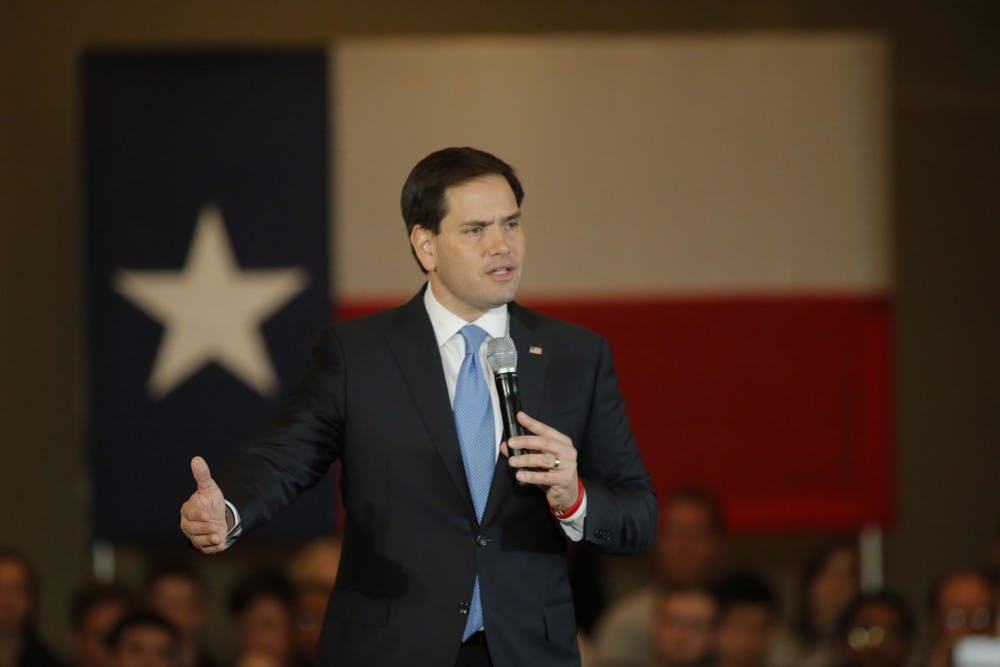
Unfortunately, he instead presided over the most partisan era in recent political history and a drastic splitting of our country down party lines. Rubio, on the other hand, has showed throughout his political career that he is a principled, but still pragmatic statesman who is able to compromise in order to get things done.
He has not emphasized this aspect of himself as much of late during the cutthroat attempt to out-conservative the next man that has marked the GOP primary. Despite looking moderate this election cycle next to an unabashed populist, Donald Trump, and an unbending zealot, Ted Cruz, Rubio actually places fourth-highest in a ranking measuring the conservatism of Senate Republicans.
However, he has distinguished himself from radical Republicans by his willingness to make concessions to conservative principle in order to accomplish larger goals. Unfortunately, while he proposed much potentially momentous legislation during his five-year Senate career, the Washington stalemate has stifled attempts to enact them. To more accurately judge Rubio’s talent for making constructive concessions in order to advance his aims, one must look a little further back, to his stint as state representative, then House speaker, of Florida.
Following his rapid rise to prominence in his home state, Rubio used his position to spark new ideas for bettering the lives of his constituents and struggled against Florida politics to achieve conservative goals. However, during his time in the Florida legislature, Rubio also joined Democrats to support legislation to give in-state tuition to the children of undocumented immigrants, promote Florida’s formal apology for slavery and advocate the promotion of literacy and mentoring for black children.
Dan Gelber, who served as the Democratic leader in the Florida House of Representatives during Rubio’s time as House speaker said of him, “While I think he is a true conservative, I don’t think he is a reflexive partisan ... He respected our right to engage in the debate, and we worked together even when we disagreed. Which was often.”
Facing a Democrat nominee of either an avowed socialist who wants to dramatically raise taxes on the richest Americans in order to significantly expand already insolvent entitlement programs or a dishonest and corrupt career politician who panders ingratiatingly to potential voters, the Republican party cannot afford to nominate extremists. Polls have shown that Marco Rubio handily wins a contest with Hillary Clinton, the likely Democrat nominee. A winning strategy for Republicans this election cycle is offering a principled candidate who can skillfully push the conservative cause while at the same time working with the other side to break the paralyzing deadlock on Capitol Hill. Marco Rubio is that man. Of all the current candidates, he is the one who can best heal our fractured nation and lead us confidently into the uncertain future.

